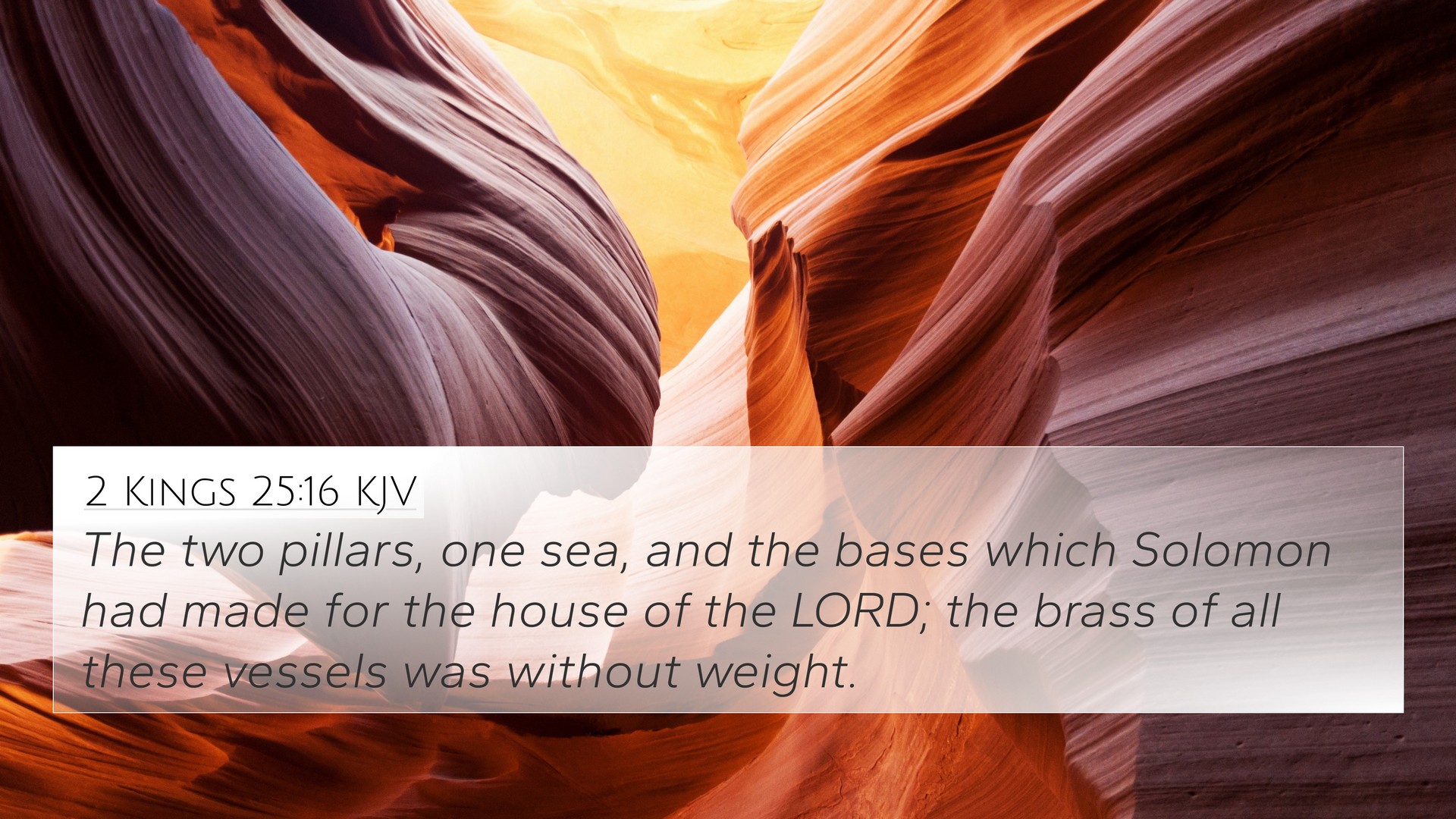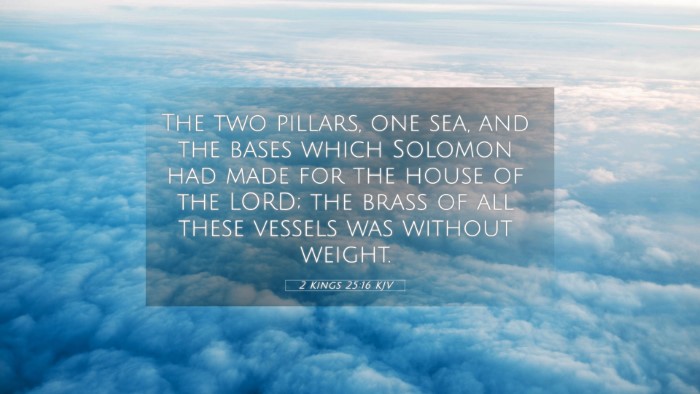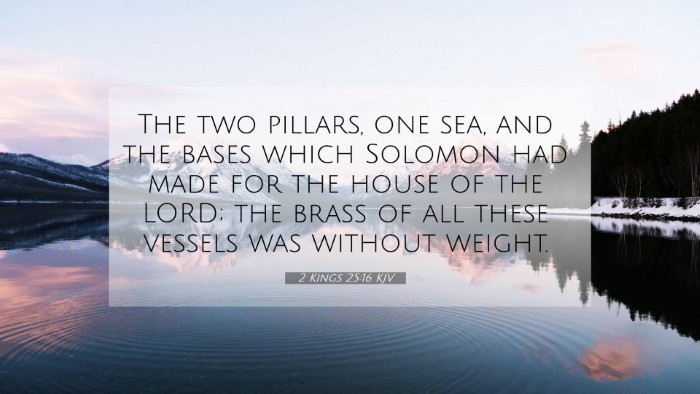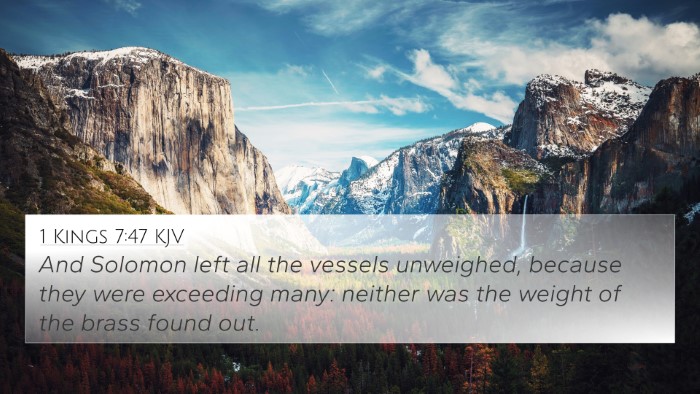Understanding 2 Kings 25:16
Verse Text: "And the two pillars, one sea, and twelve brazen oxen that were under the sea, which king Solomon had made in the house of the LORD; the brass of all these vessels was without weight."
Summary of Insights
This verse details the significant objects created by Solomon for the temple service, emphasizing the lavishness and the symbolic meaning behind these items. The mention of the pillars, the 'sea', and the oxen reflects not only the physical grandeur of Solomon's temple but also theological implications regarding God's presence and worship.
Combined Commentary Insights
Matthew Henry: Henry views the destruction of these items as a profound loss for Israel. They represented God's dwelling among His people and the glory of His presence. The brass, being "without weight," indicates the overwhelming importance of these items, both in material and spiritual terms.
Albert Barnes: Barnes highlights that the items mentioned are emblematic of God's providence and protection. The pillars symbolize strength and stability, foundational within the house of the Lord. The sea represents God's boundless grace, while the brazen oxen depict sacrifice and service, crucial to worship in Israel's religious practice.
Adam Clarke: Clarke emphasizes the craftsmanship and artistry that brought these elements to life, suggesting that each item serves a specific purpose in worship and ministry. He also notes the implications of their destruction, symbolizing the loss of liberty, worship, and divine guidance for the exiled people of Israel.
Bible Verse Cross-References
- 1 Kings 7:21 - The description of Solomon's pillars.
- 2 Chronicles 4:2 - The making of the 'brass sea' for the temple.
- Isaiah 39:6 - Prophecy concerning the treasures of the temple taken away.
- Jeremiah 52:17-23 - Detailed destruction of the temple's treasures.
- 1 Corinthians 3:16-17 - The notion of God's temple and its sanctity.
- Hebrews 9:24 - The heavenly counterpart to the earthly temple.
- Revelation 21:22 - The absence of a physical temple in the New Jerusalem.
Thematic Connections
This verse connects significantly with various themes within Scripture, primarily emphasizing God's established relationship with His people through the temple. Observing links across different books illustrates how the temple's physical destruction foreshadowed the eventual spiritual transformation in the New Covenant. Understanding these connections provides a richer narrative of God's unfolding plan through the ages.
Tools for Bible Cross-Referencing
As we explore the verse and its connections, utilizing tools such as a Bible concordance or a Bible cross-reference guide proves invaluable. These resources aid in:
- Cross-reference Bible study.
- Identifying connections between Old and New Testament.
- Finding parallel verses that enhance comprehension.
Exploring Inter-Biblical Dialogue
Understanding 2 Kings 25:16, in light of its cross-references, brings awareness to the inter-Biblical dialogue. It helps illuminate:
- The role of the temple in the Old Testament.
- New Testament reflections on worship and God's temple.
- Comparative Bible verse analysis of sacrifice and offerings.
Conclusion
In summary, 2 Kings 25:16 reflects not only on physical artifacts of worship but also evokes a broader understanding of God’s narrative with His creation. Through thorough study and cross-referencing with related scriptures, believers gain insights into both the historical context and the theological significance, enriching their faith and understanding of Scripture.



